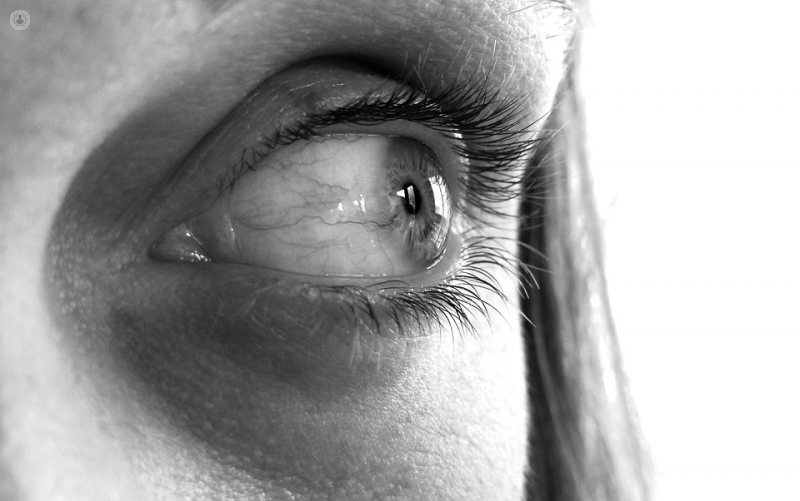Blurred lines – a guide to macular oedema
Written by:Our eyes are two of the most precious organs we have, allowing us to see and make sense of the world. However, when things go wrong inside the eyes, our vision can become distorted, our world faded, our perception altered. Macular oedema is one condition that can distort how we see, but what is it and how does it occur? Top London consultant ophthalmologist Mr Praveen Patel has the answers.

What is macular oedema?
Macular oedema is a build-up of fluid in the macula. The macula is a small area of the retina – the tissue at the back of the eye made up of light-sensitive photoreceptor cells, which are responsible for our vision. The macula is the part of the retina that gives us our high-definition central colour vision. If anything happens to the macula, for example, if affected by age-related macular degeneration (AMD) it is this central vision that suffers. In the case of macular oedema, the accumulation of fluid causes the macula to swell and thicken, distorting vision.
What causes macular oedema?
Macular oedema can be a by-product of several other conditions, or even due to damage during surgery. Any disease that damages the blood vessels in the retina can lead to fluid escaping into the macula, causing oedema. The most common causes are:
- Diabetic retinopathy – a condition that occurs in some people suffering from diabetes. This is one of the most frequent causes of macular oedema. Poor blood sugar control causes ongoing damage to the small blood vessels of the retina, which leak fluid, leading to macular oedema. Diabetic macular oedema is the most common cause of vision loss in diabetic people.
- Retinal vein occlusion – a condition in which one of the retinal veins taking blood away from the retina gets blocked. It can be associated with high blood pressure, raised blood cholesterol and diabetes. This is another frequent cause of macular oedema.
- Age-related macular degeneration - the "wet" form of AMD can cause fluid build-up leading to macular oedema and bleeding into or under the retina
- Inflammatory diseases affecting the eye
- Damage caused by eye surgery – any surgery inside the eye, such as cataract surgery or glaucoma surgery can cause macular oedema, but this is usually mild and short-term.
What are the signs and symptoms to watch out for?
Signs and symptoms of macular oedema include:
- Blurry or wavy vision, particularly in the centre of your field of view.
- Colours appearing faded
- Noticeable vision loss
If only one eye is affected, the condition may go unnoticed until it reaches a more severe stage. If you are experiencing any of the above symptoms, you should see your doctor or an eye specialist immediately.
Treatment of macular oedema
There are several treatments for macular oedema including eye drops and injection treatment. Before recommending a particular treatment, eye doctors need to find out the cause of the macular oedema to help tailor the treatment to the underlying cause.


